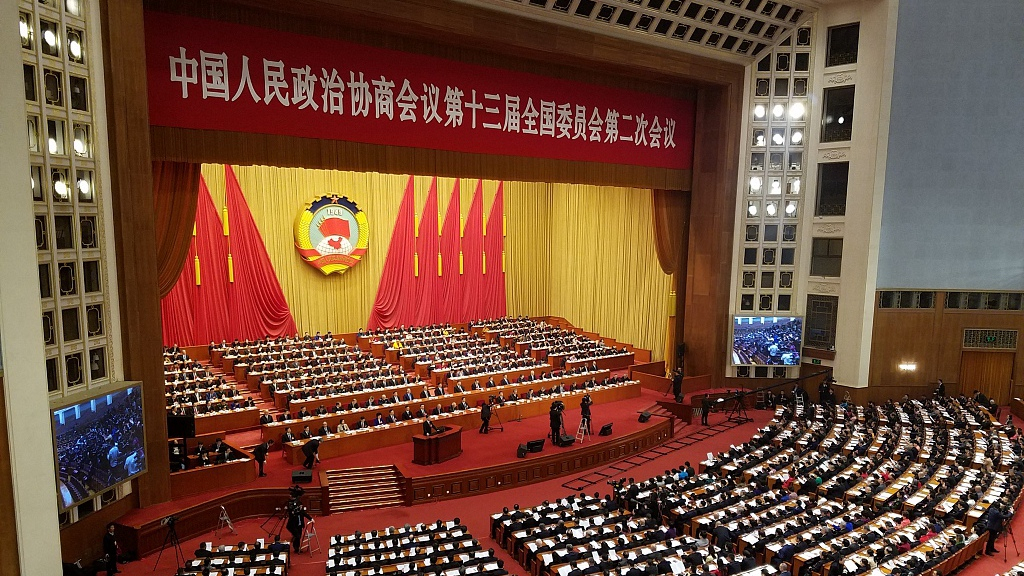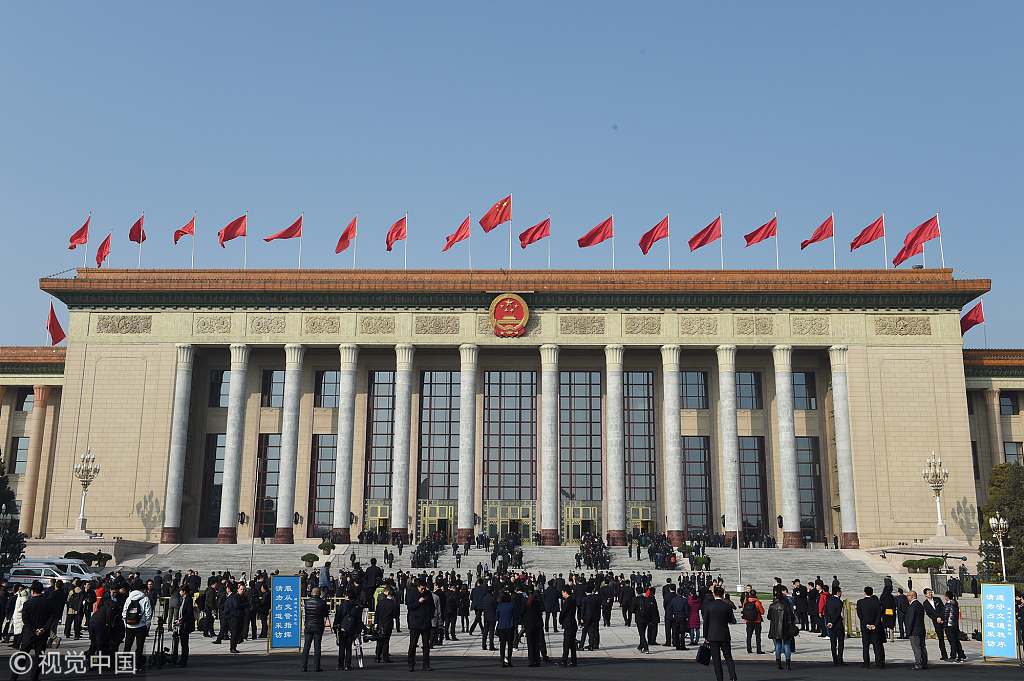
Opinion
22:57, 04-Mar-2019
Consultative democracy, a key to rejuvenation of the Chinese nation

Editor's note: The following is an edited translation of a commentary from the Chinese-language "Commentaries on International Affairs."
As the American public begins to feel the pain inflicted by the longest government shutdown in U.S. history caused by partisan political battles, their Chinese counterparts are embracing an arrangement of partisan cooperation designed to summon a concerted effort to boost the country's future development.
The annual Chinese People's Political Consultative Conference (CPPCC), held in parallel with the annual session of China's top legislature, the National People's Congress, is playing a key role in binding great minds of Chinese people, with a combined goal of rejuvenating the Chinese nation.
Living in the world's most populous country, the 1.4 billion Chinese people have diverse interests. But they share one goal, namely the rejuvenation of the Chinese nation.
As an institution of a multi-party cooperation and political consultation system devised almost 70 years ago when the People's Republic of China was founded, the CPPCC, as an advisory body, has served as a bridge between the central decision makers and the various sectors of society, in building consensus, forming synergies and promoting national development.
Since its members come from all walks of life, the CPPCC is considered widely representative, which means it has the ability to unite people from all sectors of society.

The Great Hall of the People, March 3, 2019. /VCG Photo
The Great Hall of the People, March 3, 2019. /VCG Photo
Take the 13th National Committee of the CPPCC as an example. Its 2,000 plus members, three-fifths of whom are from various non-Communist parties, include businesspeople, professionals in culture and sports, residents from Hong Kong and Macao Special Administrative Regions, as well as representatives from varied ethnic and religious groups.
Every year before the annual session, the National Committee of the CPPCC sends special research groups for field investigations across the country before putting forward policy recommendations in livelihood-related areas such as education, medical care, social security, and environmental governance.
As the CPPCC members are mostly elites in their respective fields, their suggestions are generally practical and feasible and highly respected.
CPPCC members from Hong Kong last year submitted proposals on enhancing connectivity and accelerating the construction of the Guangdong-Hong Kong-Macao Greater Bay Area.
Their proposals were then included in the Development Plan for the Guangdong-Hong Kong-Macao Greater Bay Area, which was officially issued not long ago.
According to statistics, in the past year, over 99 percent of the 5,000-plus proposals submitted by its members around the country have been processed and put into practice.
The CPPCC is an important forum for realizing people's democracy in China. Political consultation, democratic oversight and participation in the deliberation and administration of state affairs fully demonstrate the vitality of the socialist democratic system.
Seventy years of history have proven that the CPPCC is a key platform for understanding both the national conditions and public opinion. It's also the most representative united front in the country which helps shape a healthy environment for China's national development.
This world has more than one type of democracy. China's model of the CPPCC running in parallel with the NPC provides an inexhaustible force to guide the country's economic and social development and lead the country towards its great rejuvenation.
(If you want to contribute and have specific expertise, please contact us at opinions@cgtn.com.)

SITEMAP
Copyright © 2018 CGTN. Beijing ICP prepared NO.16065310-3
Copyright © 2018 CGTN. Beijing ICP prepared NO.16065310-3